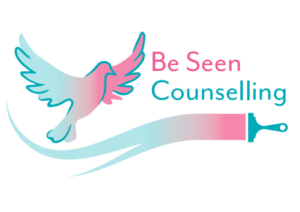Domestic violence and intimate partner violence (IPV) are pervasive issues affecting millions of individuals each year. These forms of abuse manifest in various ways, including physical, emotional, sexual, and financial abuse. Recognising the factors leading someone into a toxic relationship, understanding the dynamics at play, and identifying red flags are crucial steps in breaking the cycle of violence.

Factors Leading to Toxic Relationships
Several factors may lead individuals into relationships that become abusive. One significant factor is childhood experiences; individuals who witness or experience violence during their formative years may normalise such behavior in adulthood, making them more susceptible to IPV. Additionally, low self-esteem can play a crucial role, as people with diminished self-worth may feel unworthy of healthy relationships and might tolerate abusive behavior, believing they cannot find better.
Isolation is another critical factor. Abusers often work to isolate their partners from friends and family, making it increasingly difficult for victims to seek help or recognise unhealthy dynamics. Cultural norms that tolerate or perpetuate violence can also influence individuals’ perceptions of acceptable behaviors within relationships, further normalising the cycle of abuse. Lastly, a desire for control can lead individuals to partner with those who exhibit controlling behaviors. They may mistake these controlling tendencies for love and protection, which can trap them in a toxic relationship.
Recognising Toxicity in Relationships
Certain behaviors and characteristics are indicative of a toxic partner. Common red flags include excessive jealousy, where unjustified jealousy leads to controlling behaviors. Isolation from friends and family is another warning sign; a partner who tries to limit your interactions with others may be exhibiting unhealthy control. Frequent criticism, or constant belittling and humiliating comments, can erode self-esteem and create a sense of dependency.
Mood swings, or extreme fluctuations in emotions, can create an atmosphere of fear and uncertainty, while manipulation tactics like gaslighting—a method that makes someone doubt their perceptions—are commonly used by abusers. Recognizing these signs early on can be crucial in preventing further escalation of abusive behavior.
Vulnerability and Support Strategies
Certain individuals may be more susceptible to entering toxic relationships, particularly those with past trauma or limited social support. To protect oneself, it is essential to educate yourself about the signs of abuse and to understand what constitutes a healthy relationship. Establishing clear personal boundaries can help identify controlling behaviors before they escalate, while building a supportive network of friends, family, or professionals can provide necessary emotional backing.
Trusting your instincts is equally important; if something feels wrong in a relationship, it’s crucial to acknowledge those feelings rather than dismiss them. Being proactive in seeking help and support can empower individuals to navigate potential toxicity and break free from unhealthy cycles.

The Complexity of Gender Dynamics
While women are statistically more likely to be victims of fatal intimate partner violence, it is essential to recognize that men can also be victims and face unique challenges when seeking help. Stigmas surrounding masculinity often deter men from reporting abuse, making it harder for them to come forward and seek support. Additionally, there is a critical need to understand that violence is not gender-specific; both men and women can be perpetrators of abuse.
Although women’s physical strength might result in more severe outcomes in some cases, this does not negate the fact that both genders can inflict domestic or intimate partner violence. It is crucial to address these complexities to ensure an understanding of the dynamics of abuse across gender lines.

Challenges in New Relationships After Abuse
For new partners, supporting someone who has experienced domestic violence can be challenging due to several potential obstacles. Trust issues often arise, as survivors may struggle to trust their new partners, leading to misunderstandings or conflicts. Emotional triggers can complicate matters too; specific behaviors from a new partner might inadvertently remind a survivor of their past trauma, causing emotional distress.
Communication barriers may also exist; survivors might have difficulty expressing their needs or feelings, which can complicate their new relationships. New partners should cultivate a safe space for open communication, demonstrating patience and understanding as their partner navigates the complexities of their healing process.
Supporting a partner who has experienced domestic or intimate partner violence (IPV) can be challenging but is essential for both healing and rebuilding trust. Here are several ways new partners can provide effective support:
Ensure that your partner feels safe emotionally and physically. Encourage open communication by providing a non-judgmental space where they can express their thoughts and feelings without fear of criticism or dismissal.
When your partner shares their experiences, practice active listening. This involves giving them your full attention, acknowledging their feelings, and validating their emotions. Avoid interrupting or jumping in with solutions; instead, let them lead the conversation.
Learning about the dynamics of domestic violence and trauma can help you understand what your partner has gone through. Familiarize yourself with common reactions to trauma, including anxiety, trust issues, and emotional triggers.
Healing from trauma takes time, and your partner may need space to process their experiences. Be patient and understand that they might have ups and downs during their recovery. Avoid pressuring them to move on quickly or to “get over it.”
Your partner may have specific boundaries that are important to their healing process. It’s crucial to respect these boundaries, whether they pertain to physical affection, discussions about the past, or social situations. Always ask before discussing sensitive topics.
If your partner is open to it, encourage them to seek counseling or therapy. Professional support can provide valuable coping strategies and tools for healing. Offer to help them find resources or accompany them to appointments if they feel comfortable.
Avoid making comments that downplay or minimize their trauma, such as, “It could have been worse” or “Just forget about it.” Acknowledge the severity of their experience and the impact it has had on their life.
Empower your partner by encouraging them to make their own decisions regarding their healing process. This could include choices about therapy, support groups, or simply how they wish to communicate about their past experiences.
Understand that certain situations, discussions, or even words may trigger memories of past trauma for your partner. Be mindful of their reactions and address any triggers as they arise, offering reassurance and support.
Help your partner develop healthy coping mechanisms for dealing with stress and anxiety. This could include activities such as exercise, mindfulness, journaling, or creative pursuits. Engage in these activities together to strengthen your bond.
Make it a habit to check in with your partner about their emotional well-being. Simple questions like, “How are you feeling today?” can show that you care and encourage ongoing dialogue about their mental health.
Supporting a partner through their healing journey can be emotionally demanding. Ensure you are also taking care of your own mental well-being. Consider seeking support for yourself, whether through friends, family, or counseling, to maintain a healthy balance in the relationship.

Conclusion
Domestic violence and intimate partner violence are complex issues that require awareness, education, and empathy. By recognizing the signs of toxic relationships, understanding the factors leading individuals into such situations, and fostering open communication in new relationships, we can help break the cycle of abuse. If you or someone you know is struggling in an abusive relationship, seeking help from professionals or support groups can be a critical step toward healing and recovery. Remember, it is never too late to take action toward a healthier, safer future.
Supporting a partner who has experienced domestic violence or intimate partner violence requires compassion, empathy, and patience. By creating a safe environment, practicing active listening, and respecting boundaries, you can help your partner feel valued and understood. Remember that healing is a journey, and being there for your partner along the way can significantly impact their recovery and your relationship’s strength.

Hi there, my name is Carina,
I support survivors of domestic violence / Intimate partner violence, to understand and process the emotional and psychological symptoms so that you live your life feeling safe in your own skin, gain peace and joy in everyday moments and trust yourself and others again.
Camberwell
Southwark
London SE5 7HN

©BeSeenCounselling2025
©2025
Be Seen Counselling